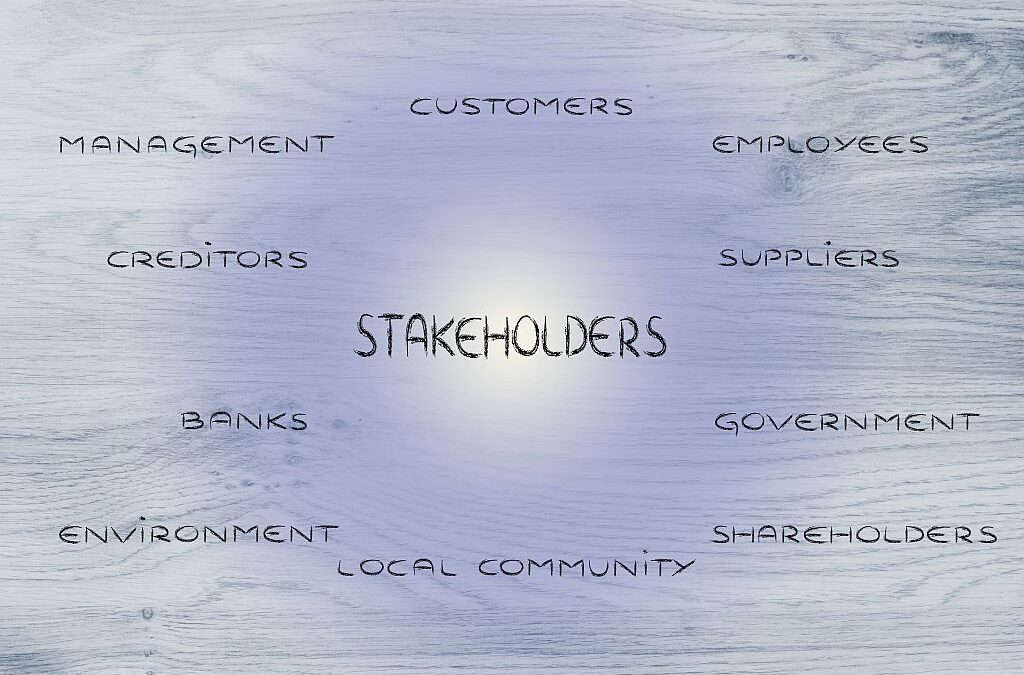This week, having started the New Professor Program, we have been reflecting much on the elements necessary as we build entrepreneurship that is focused on innovation for humanity and the pursuit of business opportunities for profit, society well-being, sustainability, and the integration of all people. These concepts are not new to this organization nor its members. However, as we have previously taken time to specifically examine opportunities for wealth generation, sustainable practices and cycles of growth, and humane inclusion, we have yet had a chance to discuss the importance of societal well-being. To properly portray how community well-being can be illuminated in our new and humane normal, we need to examine our understanding of stakeholders’ and shareholders’ role and relationship to an enterprise.
Humane Entrepreneurship can be thought of as the harmony of applied innovation, the pursuit of business opportunities for profit, and the sustainable well-being of society, which is for the people and by the people. It is, in essence, a humane way of treating entrepreneurship, where the well-being of each individual is paramount. This is an excellent concept, but it becomes interesting when we look to our historical roots, examining the operational environment. Returning to 1970, Nobel Prize winner Milton Friedman announced that any business who pursued a goal other than making money was “an unwitting puppet of the intellectual forces that have been undermining the basis of a free society these past decades.” His declaration was taken as religion, and for the next 40 some years, we, collectively, viewed shareholders as the only group to indeed have a moral claim on the corporation, which existed, in essence, to maximize their value, specifically, the bottom line. However, as we know, corporations, just as individuals and communities, do not exist in silos, nor do their company practices. In recent years, the evil and unprecedented harm on cities worldwide for the sake of the bottom line has become more visible thanks to innovations in technology, which allow people to see both the social successes and havoc caused by enterprises globally.
Next, we might look to Edward Freeman, an American philosopher. He, around the same time, stated, conversely, that many groups can make moral claims on the corporation because the corporation has the potential to harm or benefit these groups. Freeman’s theory can encompass a variable that Friedman forgot, which would be the stakeholders. Including the owners, corporate managers, the local community, customers, employees, suppliers, stakeholders are essential to the survival and success of the corporation as their relationship with the corporation affects them.
A little over a year ago, many of us applauded the Business Roundtable’s incredible statement, declaring “181 CEOs of American’s largest corporations overturned a 22-year-old policy statement that defined a corporation’s principal purpose as maximizing shareholder return.” A glorious moment in history and a small victory for the ICSB community. After nearly five years of attempts to bring visibility to this alternative perspective of viewing stakeholders as merit holders of an enterprise and organization, a significant collective, such as the Business Roundtable, decided to assist in welcoming in the transition to a more humane centered view of the enterprise.
This modality of transforming our previous consideration of shareholders as contributors and stakeholders as invisible to critical is a significant step in establishing a culture of humane entrepreneurship that works to heal rather than hurt. We kindly thank organizations, such as the Business Roundtable, for their action towards a better tomorrow. However, given the pressure of the COVID-19 pandemic, we must ask organizations such as this, what next? Almost a month after a lockdown in the United States in response to the COVID-19 pandemic, the Business Roundtable addressed Vice President Pence in a letter, stating that:
“We appreciate the efforts of the Trump Administration and many Governors to begin the difficult work of developing economic recovery plans. It is important to plan now for the gradual lifting of some restrictions on activity when policymakers, guided by public health officials, conclude the time is right. This work is especially important to small and medium-sized businesses — many of whom are our customers and suppliers — and for individuals and families who are bearing the brunt of the current crisis” (Business Roundtable, 2020).
These kind words are essential from an organization such as this, but we must now ask, how are you and your invested CEOs honoring stakeholders at this moment? When an organization declares the importance of stakeholders openly, they must act appropriately in their communities when pressure tightens. We must tread lightly and be aware that while we make this gallant movement back to our roots and Freeman’s emphasis on stakeholders, we do not mean to repeat history. Move to stakeholder inclusion, promoted by the lens of Humane Entrepreneurship, is not intended to enable philanthropic or socially responsible acts, nor are we promoting the re-establishment of social entrepreneurship. We are specifically and directly asking for a holistic approach that incorporates social achievements (the Sustainable Development Goals) and focuses on the Employees to accelerate and sustain solutions and increase opportunities on a local and global level.
We look forward to reports which cover how corporations involved in the Business Roundtable look to create more job opportunities and to empower their current employees, even in moments such as this. How are foundational organizations, such as this, providing an equitable policy that allows parents to successfully do their work, while feeling supported to care for their children learning from home? How can we ensure that we keep up with ecological policies that care for our local communities is necessary ways to continue our combat against climate change? How are organizations, such as this, advocating for fair and inclusive policies for micro, small, and medium-sized enterprises, and appropriate measures that ensure that these MSMEs have access to such aid? We commend your service to stakeholders, and we provide that we will stay current with how you uphold your practice of Humane Entrepreneurship at this moment.
We, your supporters, and your stakeholders are watching and waiting.
article by:
Dr. Ayman El Tarabishy,
President and CEO, ICSB and Deputy Chair of the Department of Management, GW School of Business



